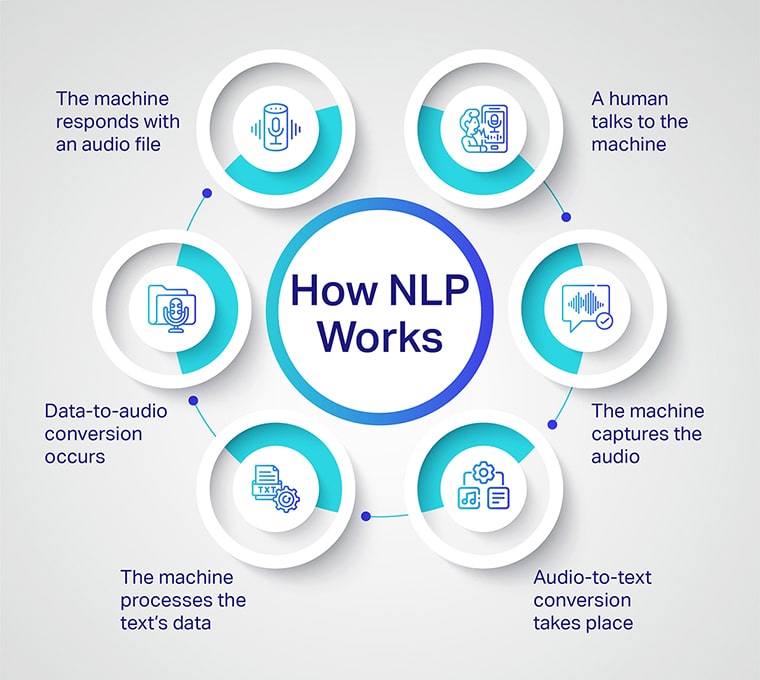What Is NLP (Natural Language Processing) and Why It Matters
What is NLP
NLP stands for Natural Language Processing, a powerful subset of artificial intelligence that focuses on enabling machines to understand, interpret, and respond to human language. Whether you’re talking to a chatbot, using voice-to-text, or auto-summarizing documents, you’re interacting with NLP in action.
How Natural Language Processing Works
NLP combines linguistics, machine learning, and deep learning to break down and analyze language. It helps machines understand not just words, but context, sentiment, and intent.
Key steps in NLP include:
Tokenization (breaking down sentences into words)
Named entity recognition (identifying names, places, dates)
Sentiment analysis
Text classification
Machine translation
Contextual understanding through LLMs (large language models)
Modern NLP is largely powered by transformer models like GPT and BERT, which understand not only the meaning of words but how they relate to each other in different contexts.
Real-World Applications of NLP
NLP is used in countless tools and platforms, including:
Chatbots and virtual assistants – AI tools like Siri, Alexa, and customer service bots
Email filters – Sorting out spam, prioritizing messages
Voice-to-text transcription – Dictation software, smart assistants
Search engines – Understanding natural language queries
Social listening and sentiment analysis – Monitoring brand perception
AI content tools – Automatically writing product descriptions, blog drafts, social posts
Why NLP Matters for Businesses
Natural language processing isn’t just a tech buzzword — it’s a competitive advantage. Businesses that use NLP in their operations can:
Automate repetitive tasks like responding to customer inquiries
Gain insight from customer reviews, surveys, and chat logs
Personalize marketing with AI-generated content and smart segmentation
Improve workflows with intelligent automation
Make smarter decisions with data-driven language insights
Whether you’re using a smart CRM, chat assistant, or social content generator, NLP is likely doing the heavy lifting behind the scenes.
The Future of NLP
As models continue to advance, NLP will only get better at understanding nuance, emotion, and complex intent. Expect more hyper-personalized AI assistants, intelligent automation, and natural conversation experiences across industries.
Final Thoughts
Natural language processing is changing how we interact with technology. From writing emails to powering advanced customer support systems, NLP is at the core of today’s AI revolution. Understanding how it works — and how it benefits your business — can help you stay ahead in a rapidly evolving digital world.
Discover more from Rhonda Cosgriff Web Designs
Subscribe to get the latest posts sent to your email.








